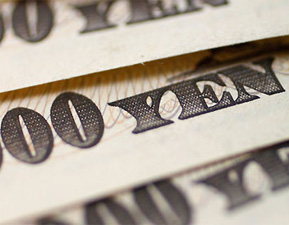Japanese Currency - Yen (JPY) - Value, Exchange Rate and Description
An individual who wishes to learn in details about the Japanese currency and its role in the global forex market must surely read the information provided in this article.
The Japanese Currency - Introduction
The Yen is the official currency of Japan the Asian island nation located in the Pacific Ocean and is named as the Yen.
It is denoted by the symbol Y, represented by the abbreviation JPY in the global forex market, holds the honor of being the third most traded currency after the USD and the Euro and is also used by forex traders as reserve currency following the USD, the Euro and the GBP.
The currency is popularly nicknamed as 'en' by its countrymen, literally meaning round object and is available in forms of coins and banknotes of various denominations issued by the Bank of Japan. This currency has two subunits namely the sen, which is 1/100th of the Yen, and the rin, which is 1/1000th of the yen.
Role of the Yen in the History of Foreign Exchange Rate System
The Yen was accorded official status by the Meiji Government on 10th May, 1871. Subsequent to its introduction, the Yen devalued against the USD in 1873 when it was accorded a fixed rate against the USD and soon lost most of its value after the Second World War. This instability was corrected due to the implementation of the Bretton Woods system in 1949 but was short lived as the Yen became grossly undervalued in 1971. Finally regaining its lost ground during the 1980s' due to the floating rates of most currencies the Yen pinnacled in April, 1995, when 1USD was equivalent to less than 80 units of the Japanese currency.
Tumultuous Journey of the Yen through the Years
The Yen was introduced when the Japanese economy was going through a transformative period and the society was undergoing major metamorphosis in form of introduction of Western education, drastic improvement in infrastructure and large scale industrialization. In such a situation, as a new Japanese currency, the Yen was looked upon as a symbol of hope which would herald good times for the burgeoning economy. However, the miraculous economic growth which continued till the 1980s' slowed down in the 1990s' followed by a period of deflation and subsequently that of hyperinflation. The value of the currency also fluctuated accordingly as the Government tried different techniques and policies in an effort to bring the economy back on track.
Monetary Policies of the Bank of Japan
The Bank of Japan has played an instrumental role in the determination of the Japanese currency ever since its inception. The intention underlying the introduction of the new currency was to spur economic growth and this objective was realized as the economy of the country progressed by leaps and bounds, the currency receiving adequate support from the Bank of Japan. However, the liquidity trap in which the country fell into during the 1990s' was also attributed to the Bank's failure to cut interest rates quickly thus causing a deflation in the currency value. This was followed by a period of inflation and since then the Bank of Japan has maintained the policy of lowest interest rates as regards its currency.
Factors Influencing the Currency Value
Like all other currencies of this world, the Yen is also affected by a number of economic indicators namely the Gross Domestic Product (GDP), the Retail Sales, the Industrial production and the Consumer Price Index (CPI). Although there are many other factors which affect the currency's value, it is these economic indicators which bear a direct influence on the price and volume of the Yen and therefore should be constantly monitored through fundamental analysis.
Cross Rate Effect
The cross rate of a particular currency is the exchange rate quote, meaning the units of a particular currency as against the units of the currency against which it has been quoted. This concept is based on the fact that currencies in the forex market are traded in pairs and expressed as fractions. Therefore, the expression EUR/JPY could be interpreted as the number of units of the Japanese currency which would be needed in order to acquire a single unit of Euro and since this ratio does not feature the USD as one of the currencies, it is referred to as the cross rate.
The Yen and Forex Market

In the Forex currency trading market, the Japanese currency holds the honor of being among the four currency pairs which dominate maximum amount of forex trade all over the world and is expressed as USD/JPY. Suppose the value of USD/JPY is quoted as being 3, it would imply that on purchasing this currency pair the forex trader would receive 1 USD for selling 3 units of JPY. In this fraction, the USD is the base currency and the JPY is the counter or the quote currency and the prices at which these are bought and sold are referred to as bid price and ask price respectively.
Being one of the most active currencies, the Yen is not limited to a particular exchange for being traded like the equities. It can be traded upon at any time and from any exchange in the world since the forex market is a round-the-clock trading platform.
In the global financial market, the Yen is considered as being perfect for participating in carry trade against a high yielding currency like the USD or the British Pound. On combining the Yen with either of the two high yielding currencies a trader can not only earn a substantial amount of spread but gain a lot of leverage as well. However, the Japanese currency has become expensive in this new millennium due to a number of factors like appreciation in its value, rising interest rates in Japan and reduced profits in other forms of trading and therefore liquidity and leverage in this currency is subject to major fluctuations.
Travelling To Tokyo?
For a good choice of hotels with discount prices, visit Tokyo Accommodation for more information.
Written by: Goran Dolenc
Do you find this content useful? Like! Tweet! Recommend! Share!
Back from Japanese Currency JPY/USD to Stock Market Today
Back from Japanese Currency JPY/USD to Best Online Trading Site for Beginners home page







